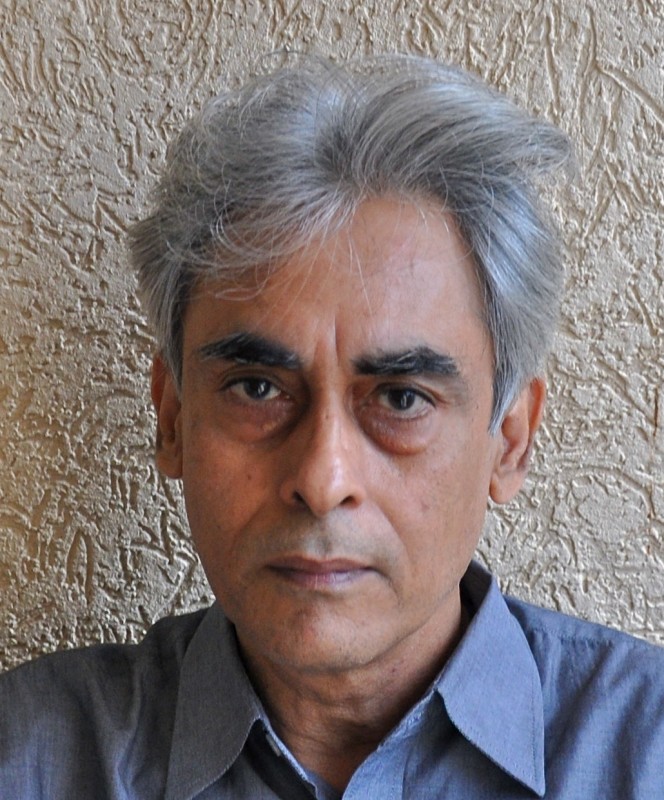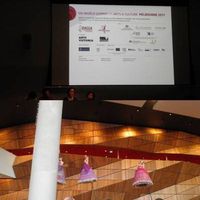Art is a catalyst for change | In conversation with Anmol Vellani

Contributed by Ulla-Alexandra Mattl
Anmol Vellani is the Executive Director of the India Foundation for the Arts based in Bangalore, India and the regional Editor of the World CP (International Database of Cultural Policies) country profiles for Asia. He has extensive experience in the fields of arts and religion, arts and the economy as well as performance and culture and development. During the 5th World Summit on Arts and Culture in Melbourne, 3-6 October 2011 he was sharing his impressions about current developments in Asia and where he sees the current priorities (in India) while discussing issues in connection with the summit theme «Creative Intersections». The theme explores how the arts and creativity are integral to other sectors.
When asked how the arts are a catalyst for change in today’s society Vellani stresses that primary education is the key and to put arts on the curriculum would make all the difference. He finds that there is a need for growing awareness that it is possible to integrate the arts in education without any additional effort or real cost.
Vellani is critical of the instrumentalisation of the arts and argues that
«one must reinforce that the arts mark out an area of autonomy while not denying their role in other areas».
He confirmes what was mentioned repeatedly during the sessions of the World Summit - that it is essential to value the arts for their own sake.
«Otherwise, he says, the arts would be empoverished and we would not be protecting the power of creativity and imagination. This would lead to the arts not being powerful for other sectors».
Vellani points to his paper on «How not to commodify the arts: Exemplary entrepreneurial practice from India» which was published in 2008 and in which he examines issues that arise for artists and the wider community when artistic practices become commodities limited by markets and re-shaped for the consumption of audiences outside the milieu or culture from where they have arisen. (UNESCO E-Journal, Volume 1 Issue 2, October 2008).
Growth, according to Vellani is not sustainable in China and India. He is convinced that it will take a generation to become more ecologically conscious. This might not be too late he says. During the conference he pointed out the importance of education policy in creating an awareness for the climate and environmental challenges India and China are facing: «Arts and ecology need to be connected in the curriculum because space belongs to all of us and for the moment the idea of a public space does not exist in India».
With regard to Asia-Europe cultural co-operation he shares his impression that the play of forces is now working into the opposite direction with Asia being the growing economy in the world and Europe being in economic decline. Money for collaboration is now emerging in Asia, Korea now being the driving force not at least by branding itself as the creative industries hub and leader in Asia.
Vellani underlines that Europe has created the view of Asia as we see it today, of course Asia is much more complicated and diverse than the image Europe has got. Asia is much bigger than the ASEAN region. India and China are now at the centre, everything evolving around these two, Japan having lost its long lasting importance in the region. A change of perception can be noticed in Asia in general, he says, and talks about a more «European» way of thinking which is much more present than 20 or 30 years ago.
While Europe has to deal with substantial funding cuts in the cultural sector and is reviewing its funding models, Vellani believes that although funding is low, it will remain stable, ahead of inflation. In India the government will remain and is the most important source of funding He believes that India should be looking at some elements of the US model for funding the arts since for the moment there is no tax reduction for giving in kind. The UK under the new government has also revisited the idea of the US philantrophy model. In India the philantrophy model does mainly not grow simply because of the current legal framwork. Vellani says that «Indians care about the arts but also about the money».
One of the diffculties for the cultural sector in India is the fact that there is no articulated cultural policy in place. Vellani who is the regional Editor for Asia of the World CP Cultural Policy Profiles believes that the initiative can be of real benefit to the region.
«Of course it is only the beginning but the profiles will help to be proactive and get the process of thinking going », he says. «The simple fact that it is there will help create a debate and put issues on the table. As a framework for action the profiles will intervene in the cultural sector comprehensively in every possible way. In makes governments think what could be lying in their actions and changes in their actions over decades. Even in countries who have a cultural policy governments are still afraid that politically this is a dangerous thing to do.»
As for India the key issue is not diversity, since most countries are culturally diverse. The issue is about culture and language. According to Vellani language is a political «hot potato». The incredible richness and large amount of languages in many Asian countries such as India makes it very difficult to agree on defined policies.
Overall, he finds that the interventions and discussions during the World Summit on Arts and Culture were very fruitful, while he was already preparing to fly out of Melbourne in order to get back to one of the many projects he is managing.
Ulla-Alexandra Mattl is the Co-ordintor of EUNIC in Brussels and the Project Manager of the European project Poliglotti4.eu. She is also the EU Correspondent for the Artsmanagement Network. Ulla is specialised in cultural relations and holds an MA in Cultural Policy and Arts Management from City University London as well as an MA in Finno-Ugric Studies and French with focus on Sociolinguistics www.poliglotti4.eu






